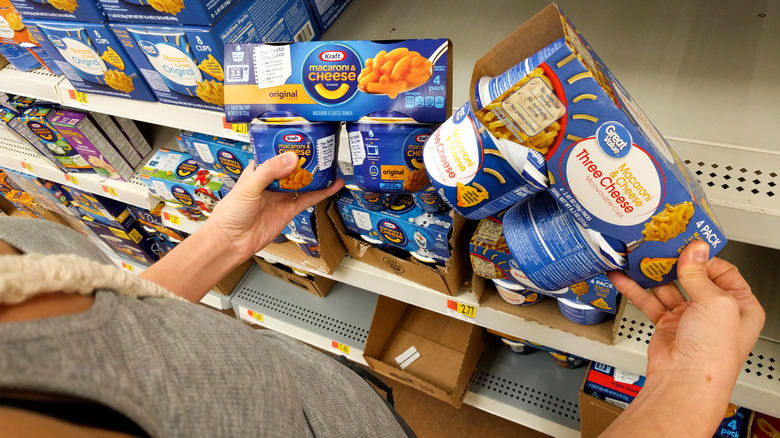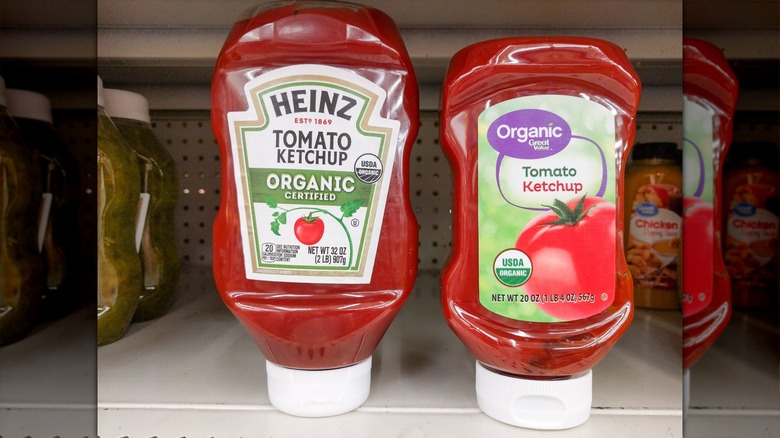Why Grocery Stores' Private Brand Growth May Fall Short Of Goals
When the pandemic caused major outages in almost every aisle of the grocery store, shoppers became more willing than ever to buy a container of hand sanitizer that looked like it was made at their neighbor's house or a random bag of off-brand pasta they had never noticed before. According to Consumer Affairs, these outages sparked an interest in private-label store brands. In fact, according to SPINS, sales on private labels products have been increasing over the past year with a 3.8% annual increase reported in June and a 10.7% four-week increase confirmed earlier this year (via Forbes).
Initially, store brands began flooding shelves to fill gaps where brand-name items were out of stock or to provide a more affordable option for a popular product. But as shoppers started giving store brands a chance, they realized that private-label products held their own compared to name brands in quality and flavor. Consumers may have picked the product because it was the last thing on the shelf or the most affordable option, but they became repeat customers because they could save money without compromising — and retailers and their suppliers took notice.
Retailers began grappling with a quality versus quantity debate regarding private-label store brands and grocers focused solely on associating store brands with low prices and out-of-stock items started reconsidering their priorities.
Grocers and suppliers disagree on store brand product lines
Store brands once purchased as budget savers have become go-to goods as stores like Trader Joe's showed that it paid to step up their private-label product game and offer fancier foods that shoppers preferred. But as grocers scramble to provide store brand options comparable to national brands, a Food Industry Association's (FMI) Power of Private Brands report notes that food retailers and their suppliers struggle to agree on the most lucrative and effective ways to reach their private label goals (via Grocery Dive).
Increasing consumer demand for grocery store brand labels prompted retailers to set lofty goals for private label products, but they seem to have trouble agreeing on which products would perform best on store shelves. Food retailers seem focused on ensuring that shelves are filled with store-brand versions of popular products that customers can reach for when brand name options are out of stock. But while 79% of retailers identified new product lines that fill gaps as a priority, only 58% of manufacturers agreed. As the report explained, suppliers prefer to focus on streamlining the assortment of store brand options to coincide with supply chain availability.
Grocers and their suppliers also disagree on diversifying the manufacturers of private-label food producers. Where retailers see more manufacturers as beneficial, suppliers believe that strategic partnerships with a smaller number of suppliers are more beneficial in the long run. Grocers and their store brand suppliers may want to align their priorities before their customers return to national brands.

